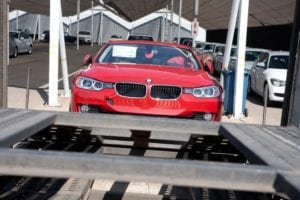Transnet National Ports Authority’s (TNPA) recent tariff application has been welcomed by some vehicle exporters.
TNPA presented their proposed tariff adjustments to Parliament earlier this month with a new pricing strategy based on the user-pay principle. They had also asked the National Port Regulator for an increase in tariffs which would amount to 3% added onto the inflation rate for three years from 2014-15. With regards to the proposed schedule, import tariffs would be higher than those for exports with shipping lines paying higher tariffs and a reduction in container dues for imports and exports would be implemented. BMW spokesman Guy Kilfoil described the proposed reduced port tariffs for vehicles as “great news” for the industry. BMW exports the 3-Series from its Rosslyn plant to markets in the US, China and Japan. “We’re based at the bottom end of the southern hemisphere and there is a competitive disadvantage to our location,” he said. Mr Kilfoil said it was “good to see stakeholders getting together and that all parties are getting a good understanding of the disadvantage of our location”. “Plants in South Africa increasingly compete with plants in Asia, and we need every competitive advantage we can get,” Mr Kilfoil said.Mercedes-Benz SA’s manufacturing chief, Arno van der Merwe, agreed. “Along with other industry partners, we have been calling on government to review port tariffs and cargo duties.
“We are heartened that our entreaties are starting to be addressed and that Transnet is engaging in fact-finding and benchmarking exercises,” he wrote in a response. The Transnet proposal to reduce cargo duty would assist the automotive industry in reducing inbound and outbound logistics costs, he said. Toyota SA’s spokesman Leo Kok said the company would “keep a close eye on this development and is delighted with any initiative that supports our goal of becoming more cost-competitive”. General Motors’ Denise van Huyssteen said the company was “still studying the document”.






